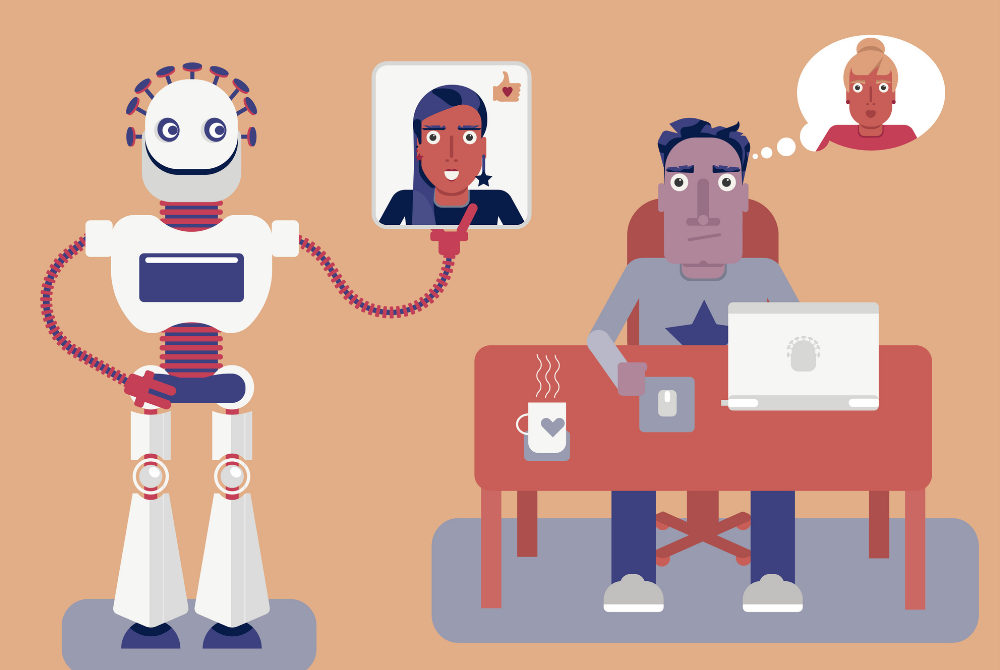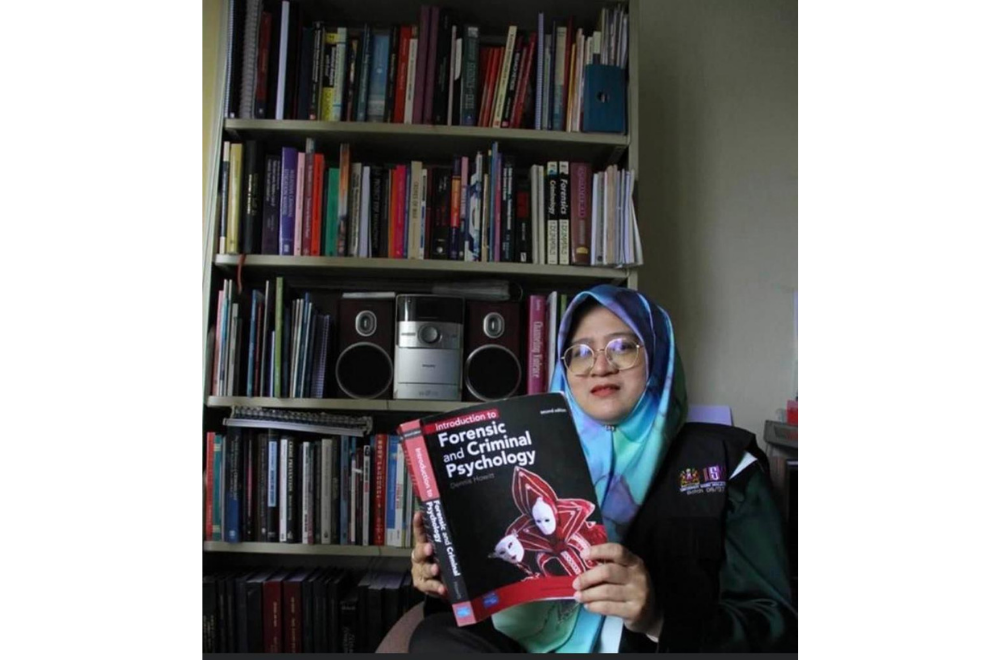Violence in the virtual world: Will it lead to real-life danger?

Last month, a Reddit thread of men who created Artificial Intelligence (AI) ‘girlfriends’ on a smartphone app called Replika came to light.
The thread which expounds in grisly detail the verbal abuse inflicted upon aforementioned AI partners, has since been deleted.
The app in question allows users to create chatbots and ‘teach’ them how to communicate in real-time.
Although the app was never created for the purpose of romantic or sexual relationships, it took male users little to no time to misuse the app to fulfill their twisted fantasies, knowing full well that they do not plan to inflict the same amount of harm on real-life women.
Reports of increasingly violent behaviour within digital spheres have started pouring in since then, with the most recent incident being a woman who was virtually gang-raped in Facebook’s Metaverse just moments after she joined the Virtual Reality (VR) platform called Horizon Worlds.
Undoubtedly advancements in AI and VR have brought along many benefits and transformed the ways in which we do things, but it is not without its shortcomings.
As seen in both scenarios, whether you are a female bot or a real woman, there is not much being done to protect you from being harassed online.
In order to understand whether these behaviours will ever translate to real-life dangers for women out there, Sinar Daily spoke to Universiti Sains Malaysia (USM) psychologist and criminologist (Forensic Science Programme, School of Health Sciences), Assoc. Prof. Dr. Geshina Ayu Mat Saat and Research and Women's Aid Organisation (WAO) Research and Advocacy officer, Anis Farid on the matter.

Anis said the possibility of men moving on to inflicting real harm from practising on their AI girlfriends is a pressing concern that should be addressed.
Men who practice extreme forms of masculinity, she said, still believe in the value of violence and aggression, and will always have that sense of entitlement where women are concerned. The only thing holding them back is that some, not all, actions are punishable offences in the eyes of the law.
The usage of AI bots instead of real women may seem harmless since there is no ‘real victim’, but just the fact that there is a huge pool of men practising these violent behaviours online indicates that these men believe, to a certain extent, that such behaviours are permissible.

It is important to note that there are various motives for violence. According to Dr. Geshina, violence may be reactive or emotional, in which the physical expression of anger arises in response to a perceived provocation (imagined or real).
Affective violence on the other hand, is impulsive and unplanned, in which a person has predominantly violent thoughts and subsequently behaves violently – even when no triggers are around.
Something else to consider is that violence may be proactive or instrumental. In this case, violence is calculated, planned, and carried out in anticipation of a reward or benefit, such as revenge, elimination of competition, power, control.
Predatory violence involves deliberately planned acts that individually or collectively result in harm suffered by a victim(s). The most gruesome example of which, is the sexual grooming of children.
Irritable violence is violence motivated by frustration and inability to express anger constructively or being unable to express anger towards the source of anger.
Lastly comes territorial violence where the violence is motivated by intrusion or the trespassing of someone into another person’s perceived territory, space, rights.
It is therefore hard to pinpoint what made this group of men in particular, gather and revel in the attention they receive on Reddit when they speak of their Replika deeds.
Dr. Geshina also highlighted that expressions of anger are often satisfied by emotional and behavioural reactions of the recipient of anger.
“Since AI bots are passive and they do not respond to abuse, would the venting of frustration be resolved?”
Anis then remarked that the focus should not be whether these behaviours are better than the alternative, but we should ask ourselves why these behaviours exist at all.
Dr. Geshina agreed with this sentiment, and assured that while not all men are violent, it is worrying that there are some men out there who spend their free time expressing violent vitriol to AI creations.
“Anger, aggression, violence are mostly learned behaviours and reactions. True, there are violent predispositions, but there are also moral obligations, socially sanctioned behaviours, religious observance, and self-control,” Dr. Geshina explained.
“So where and how do such men learn that it is okay to act violently? And why is it more socially acceptable for men to behave in such manner?”
In WAO’s recent Malaysian Public Attitudes towards Violence Against Women (VAW) survey, the organisation found that Malaysians have a high tendency to endorse violence-endorsing attitudes (with only about half of Malaysians, 52.7%, opposing violence-endorsing attitudes).
These attitudes justify, excuse, minimise VAW as well as blame survivors for the violence perpetrated against them.
The normalisation of such attitudes can be traced back to one’s upbringing. Dr. Geshina stated that while some people have strong toxic traits to begin with (nature), but manage to have good social relationships and are brought up in a positive environment (nurture), aggression and violence are less readily expressed.
However, Anis chimed in and noted that while men feel the need to assert their masculinity and perform it in toxic ways, patriarchal pressure should not be used to justify such behaviours.
When asked why abusive men feel the need to brag about their deeds to other men, Dr. Geshina said that there is no straightforward answer, but the simplest way to put it is that they can.
In a world where mistreating and abusing women is already so prevalent, having it happen in a virtual space should come as no surprise, “Who is going to stop them when a tolerant culture is already in place?”
What we are doing by not perceiving violence against women in virtual spaces as an issue is that we are contributing to a culture already existing, which encourages and enables perpetrators.
Anis confirms that people fantasising or visualising how they want to mistreat women is not a new phenomena, “The only new thing about this phenomena is that it gives people a new tool to act on those fantasies and for some, this may very well blur the line between what is real and what is just a fantasy or imagined.
The issue, she said, should not be examined as whether the men, as individuals themselves, would be motivated to move on to perpetrating violence, but rather how such behavior encourages the normalisation of violence against women.
How do we go from here? To Dr. Geshina, preventing more violent and aggressive behaviour in generations down the line all start from an early age, where learning how to manage one’s emotions should be of utmost priority.
Anis agreed and explained that the solution lies in the stages before men and boys start seeking out romantic partners, through providing an empathetic education.
“Both inside and outside of classrooms, boys must learn how to socialise and healthily cope with their emotions.
“Teaching men healthy masculinity that is not rooted in the need or desire to assert power over women is a good place to start. Giving men the resources to unlearn what they have been taught with regards to the purpose of a romantic relationship and their role within it and allowing them to learn healthier expectations and behaviours in place is important,” she added.
Download Sinar Daily application.Click Here!















